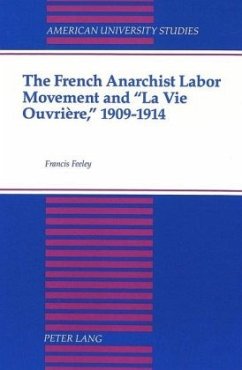Pierre Monatte (1881-1960) was 29 years old when he met with a small group of French anarchists in a Paris apartment and decided to publish a bi-weekly magazine which he named "La Vie Ouvrière". The year was 1909, and the anarcho-syndicalist labor movement was perceived as floundering in a quagmire of economic reformism and political opportunism. The revolutionary syndicalists who came thogether at the office of "la Vie Ouvrière" sought (1) to promote the anarchist doctrine of "direct action;" (2) to combat the effects of militarism, nationalism, and authoritarianism; and, (3) to ultimately replace the political economy of capitalism with a socialist economy governed by the producers themselves. The core members of "La Vie Ouvrière" found direction in the slogan of the First International Workingmen's Association, which was founded in London in 1864: "The emancipation of the working class must be the work of the workers themselves". Until the outbreak of the First World War, thiswas the project of the French Anarchist Labor Movement and its organ, "La Vie Ouvrière".
"Doctor Feeley lived in France for seven years; his research at the National Archives and other institutions in Paris as well as his contact with many different sectors of French society have given him valuable insights into French social history." (Professor Elisabeth Chamorand, Université Stendhal Grenoble, France)
"Francis Feeley lived in Montmartre, still a largely working-class Parisien neighborhood, and taught history at the Sorbonne Nouvelle while researching the history of French anarcho-syndicalism. His contact with French society... has given him many insights, which he shares with his readers in this warm book." (Professor Henri Lemare, Sorbonne Nouvelle Paris, France)
"Francis Feeley lived in Montmartre, still a largely working-class Parisien neighborhood, and taught history at the Sorbonne Nouvelle while researching the history of French anarcho-syndicalism. His contact with French society... has given him many insights, which he shares with his readers in this warm book." (Professor Henri Lemare, Sorbonne Nouvelle Paris, France)

